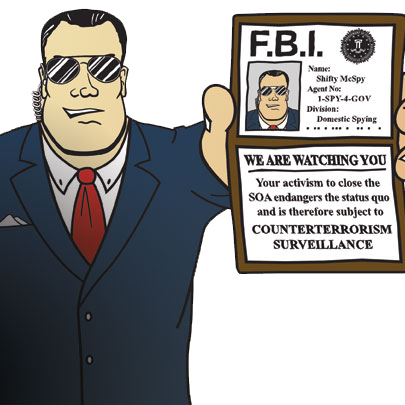 NEWS
NEWS
 NEWS
NEWS
 NEWS
NEWS
![]() Google has taken another step towards greater transparency with the revelation that the FBI made ‘up to’ 1,000 requests a year for user data from 2009 to 2012, using a controversial and secretive technique known as a “National Security Letter,” that does away with the need for an arrest warrant.
Google has taken another step towards greater transparency with the revelation that the FBI made ‘up to’ 1,000 requests a year for user data from 2009 to 2012, using a controversial and secretive technique known as a “National Security Letter,” that does away with the need for an arrest warrant.
For those who haven’t heard of them, National Security Letters (NSLs) are not something that can be dismissed too easily. Essentially, they’re used by government agencies to obtain information on suspects in matters of national security, where its deemed to risky to notify the persons concerned that they’re under investigations. As such, agencies can play the NSL card to obtain all kinds of data from companies like Google, including a customer’s name, address, billing records and other data.
Google wants to be transparent, and while it’s barred from giving away too many details, the company’s legal director Richard Salgado seems to have been as open as he possibly can in his blog post explaining the FBI’s secretive data requests.
According to Salgado, the FBI doesn’t need to obtain approval from any judge to issue an NSL, but there are lots of restrictions on what it can be used for. NSLs are not allowed to be issued for ordinary criminal or administrative matters, nor can they be used to obtain information on the full gamut of Google services, meaning that all of your Gmail content, search activity, YouTube history and IP addresses are safe, says the company.
“The FBI has the authority to prohibit companies from talking about these requests. But we’ve been trying to find a way to provide more information about the NSLs we get — particularly as people have voiced concerns about the increase in their use since 9/11,” insists Salgado in his post.
Salgado continues that the information Google has revealed today was done so with the blessing of the FBI, which probably helps to explain why it’s all so vague.
“You’ll notice that we’re reporting numerical ranges rather than exact numbers. This is to address concerns raised by the FBI, Justice Department and other agencies that releasing exact numbers might reveal information about investigations,” Salgado explained.
And indeed the cupboard is pretty bare, as all Google lets on is that the FBI has made between zero and 999 requests a year via NSLs over the last four years. This doesn’t tell us much in itself, but we can be sure that there were at least some requests, given that the number of accounts affected by these requests falls between 1,000 and 1,999 accounts in the years 2009, 2011 and 2012, and between 2,000 and 2,999 during 2010.
![]()
With so few details given away, we don’t know much else about the nature of the requests or how effective they may have been in the FBI’s ‘national security investigations’. However, the limited disclosure does at least serve as a reminder – or perhaps a wake up call – for those who may have forgotten or never even heard of NSLs – they do exist all right, and the FBI most definitely uses them from time to time.
Of course, the disclosure also serves Google’s propaganda purposes too, given that it’s always bleating on about how important it treats its user’s privacy. By constantly reminding us of the steps it takes to guard our data from prying eyes, Google does a good job of deflecting attention away from whatever it does with your data.
THANK YOU